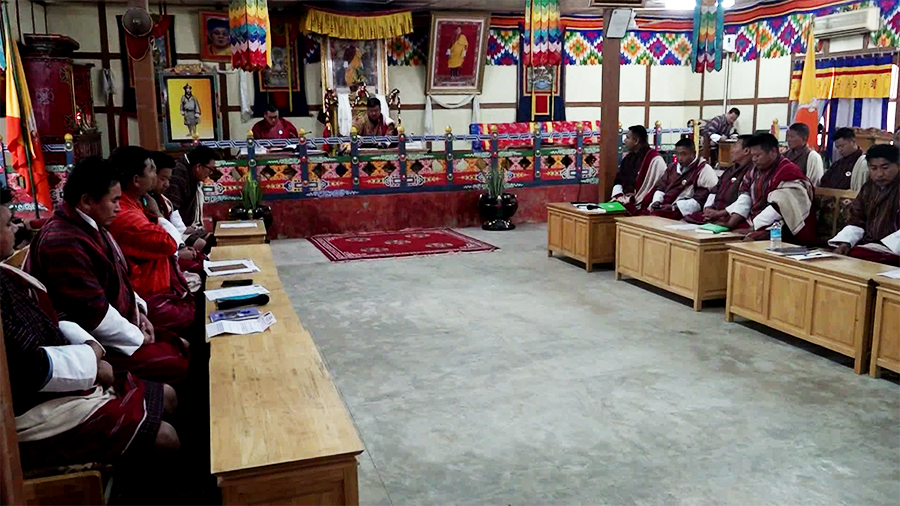
Local leaders in Samtse and Sarpang are calling for a change in the current construction approval process in rural areas. One of the new rules requires converting dry land into residential land to get construction approval in rural areas. During the recent Dzongkhag Tshogdus in the two districts, local leaders said the process is time-consuming and inconvenient.
One of the main agendas during the recently held Dzongkhag Tshogdu in Samtse was the process to get construction approvals in rural areas.
Talking on the matter, many local leaders said the new rule is causing a great amount of delay to those who are planning to construct houses in the villages.
“Earlier, people could build their houses on dry land as soon as they get permission from the district. But today people can no longer do construction work on dry land. Now there is extra work in converting the dry land to residential land. For that we have to go to the gewog first and then to the district administration,” said Karna Bdr Thakuri, the Gup of Ugyentse Gewog.
“Moreover, we have also witnessed a shortage of land registrar officials in the district. When one land official is visiting Sibsoo, residents of Tading have to wait until they are done with their work in Sibsoo,” said Yam Bahadur Ghalley, the Tading Gup.
“Likewise, we also have to get approvals from the gewog administration to construct temporary sheds for pigs and chickens. I feel there is no need to get approval for such construction as it is only for temporary purposes. We will be grateful if some changes can be made to the existing rule for construction works in rural areas,” said Bika Raj Rai, Dophuchen Mangmi.
The Samtse Dzongkhag Tshogdu, however, decided to write to the National Land Commission Secretariat for possible amendments to the current rule and also concerning the shortage of land officials in the district.
The recent Dzongkhag Tshogdu in Sarpang also discussed on the same issue.
“We have to convert our dry land into residential lands for any construction. Be it a construction of a pigsty or a toilet, we have to convert our dry land into residential land,” said Suk Dorji Yonzon, Shompangkha Gup.
“One of the main challenges is converting the dry land into residential land. It takes about two to three months to do that. It would be better if relevant officials can look into the matter,” said Jigme, Singye Gup.
The land record official in Sarpang said the new rule was introduced last year.
“As per the order received from the Land Commission, dry lands are only for agricultural works and cannot be used for construction purposes directly. For house construction, the land has to be converted into residential land by any means. We are simply following the orders from above and it is also, as per the land act,” said Wangdi, Officiating Land Record Officer.
The Sarpang Dzongkhag Tshogdu decided the gewog leaders of the 12 gewogs would collect all the land conversion applications and bring it to the dzongkhag office at the end of each month to ensure a smooth process.
Passang Dorji and Karma Wangdi
Edited by Yeshi Gyaltshen





